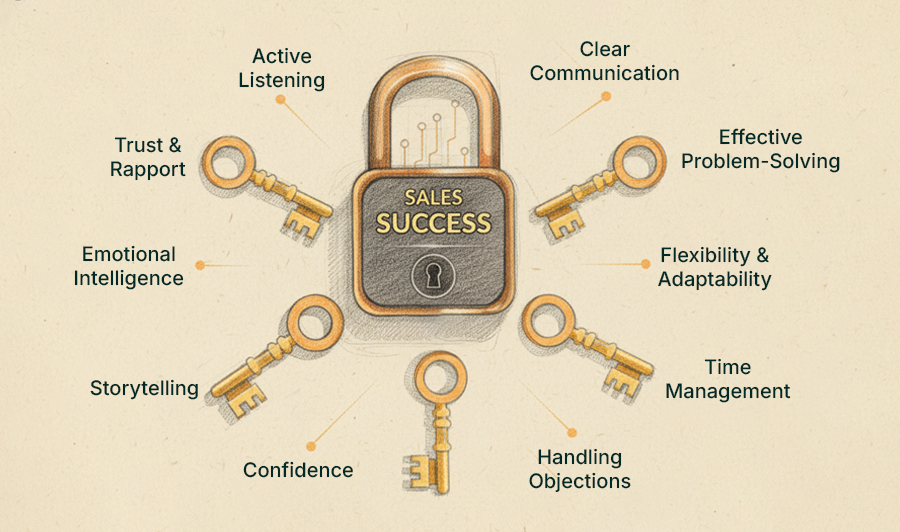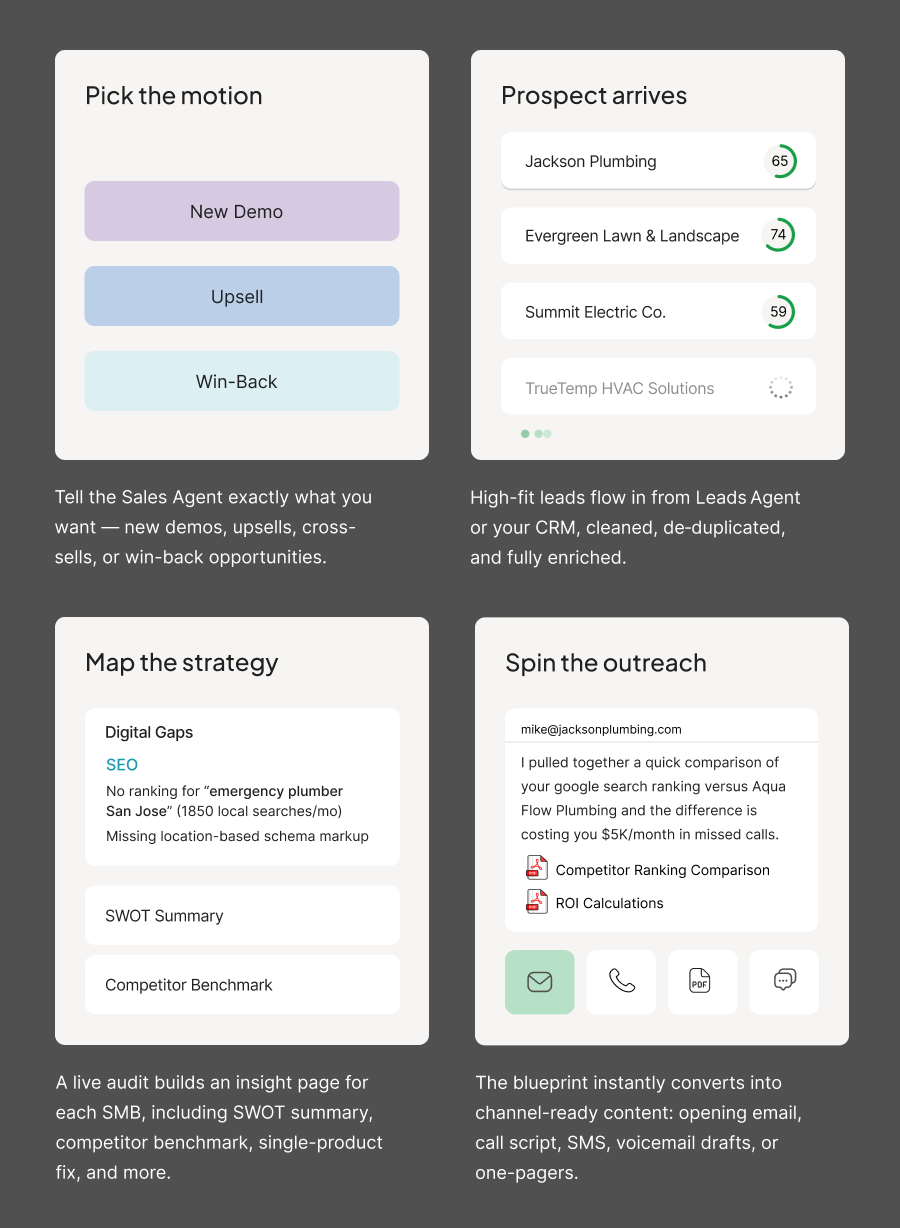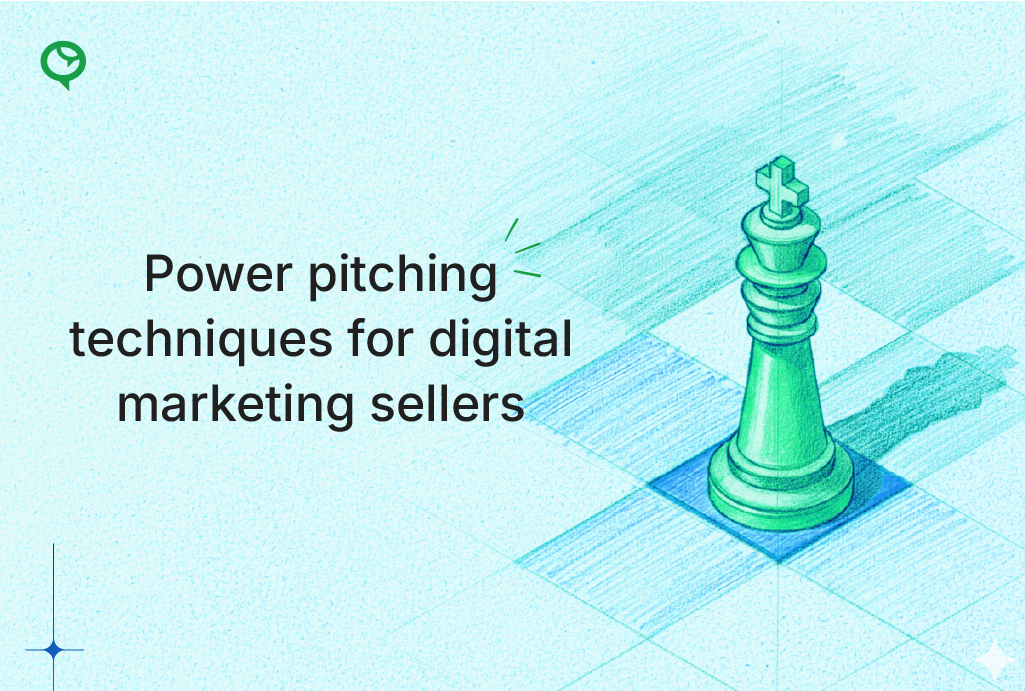How to pitch and present digital marketing services to small business owners
To truly succeed in pitching digital marketing services to small business owners, agencies must expertly blend technical expertise with soft skills that build trust. Small businesses seek partners who understand their unique challenges and vision. Communicating clearly, building trust, and delivering value through personalized solutions are key to converting these businesses into long-term clients.
- Agencies often focus on analytics, SEO, and ad performance, but they neglect the emotional connection that small business owners crave.
- Soft skills like active listening, storytelling, problem-solving, and emotional intelligence are crucial for building rapport and persuading small business owners to invest in digital marketing solutions.
- Use clear, concise, and niche-relevant language, and spell out clear benefits and outcomes your service will drive.
- Be prepared to answer questions and provide case studies or testimonials to build credibility.
Small business owners understand the importance of online presence… But lack clarity
Undoubtedly, with the right marketing strategy, small businesses can reach more customers, elevate their brand visibility, and even monitor their marketing efforts. However, far too often, agencies and other marketing providers focus entirely on the services they offer and their technical aspects — analytics, SEO rankings, and ad performance — without addressing the emotional and relational components that truly resonate with small business owners. While these matter, when pitching your services to small business owners, it’s your ability to connect, communicate, and persuade that will win you the deals.
While many small business owners recognize the importance of investing in digital marketing, they may not think beyond the ‘cookie-cutter’ idea of digital marketing. As a digital marketing professional, your challenge lies in effectively communicating the value of your services and convincing them to invest in your expertise.
Successful pitching requires a mix of understanding their pain points, offering tangible solutions, and building trust. And to earn their trust and show them the value you offer, the ability to connect, empathize, and communicate effectively is key.
Step 1: Focus on your soft skills to become a well-rounded salesperson
Soft skills in sales pitches refer to personal attributes, character traits, and interpersonal abilities that enhance a salesperson's interactions with clients and colleagues. Now, unlike hard skills, which are specific, teachable as well as technical abilities that can be defined and measured, soft skills are more subjective and harder to quantify.
To learn about how to create a compelling sales pitch, personalized to a prospect's unique business need, read our blog post on how to create the best sales pitch for selling digital marketing services to small businesses.
Smart and ambitious sellers prioritize building relationships alongside providing tailored solutions using the practice of consultative selling. Consultative selling amplifies your soft skills, for it focuses on understanding and solving client problems rather than just pushing a product.
The customer-centric foundation of consultative selling rests on specific pillars of soft skills. Simply put, these soft skills are your golden keys to unlock optimal sales success!

Step 2: Pitch with persuasion combining your soft skills and technical abilities
To successfully persuade with the sales pitch, the seller must craft their message in a way that resonates with the client’s emotions and goals while demonstrating the tangible value your services offer. This means aligning your pitch with what matters most to the customer — whether it’s saving time, increasing revenue, or solving a specific problem.
Progressive techniques to create impactful sales pitches for digital marketing services
- Understanding your audience is paramount when developing an impactful sales presentation. Small businesses usually have unique needs, localized markets, and limited budgets — factors and data that should shape your sales presentation strategies. As a salesperson, you must grasp their operations, target audience, competition, and goals. This knowledge allows you to tailor your sales pitches to be concise, relevant, and compelling.
- Next, highlight the benefits of digital marketing services your agency brings to small businesses. Emphasize data-driven marketing, increased online brand visibility, and the potential to reach and engage a global audience. You must know your products or services inside out.
Now, when you’re interacting with your customers, it’s tempting to spend most of the time talking about your services, but the most successful pitches are rooted in listening. Small business owners want to be heard and understood, especially when they’re working with limited resources.
Instead of jumping into what you can offer, ask open-ended questions like:- “What do you feel is your most pressing issue right now?”
- “What would success look like for you over the next year?”
Then, listen. Don’t interrupt or rush to provide answers. Let them express their concerns fully.
- Creating compelling sales presentations is essential to pitching your services. The challenge is effectively communicating the potential and importance of digital marketing as it pertains to that individual small business. Personalization is the key here.
Use every available tool to enhance your sales presentations. Live demos, client testimonials, case studies, and clear return-on-investment models breathe life into your pitch. These tools effectively illustrate how your services can enhance their digital presence and business growth.
At this level, storytelling is your most dependable ally.
A well-crafted story helps buyers envision success with your solution and makes the benefits more tangible, personal, and memorable. When done right, storytelling not only conveys your message but persuades in a way that statistics and specs alone cannot.
Why storytelling works in sales?
In sales, storytelling works because it creates context, frames the problem, and shows the solution in action — all while keeping the customer engaged and emotionally connected to the outcome.For example, while highlighting the benefits of a digital marketing solution, you could frame it in a real-world scenario like this: “A small e-commerce client was struggling with low traffic and missed sales. After implementing our digital marketing services, they automated ads and streamlined social media efforts, boosting website traffic by 50% in just three months. This not only drove significant sales growth but also freed their team to focus on higher-level strategy instead of routine tasks.”
This story doesn’t just tell the client what the solution does; it paints a picture of success that connects their aspirations.
- Confidence influences how clients perceive you, your product, and your ability to deliver solutions that meet their needs. One critical aspect of confidence is knowledge. The more you understand your product and the challenges your clients face, the more confident you’ll be in presenting solutions. Confidence also comes from granular-level research and preparation — knowing the market, anticipating client objections, and having clear goals for each sales interaction.
Small businesses are more likely to buy when they feel assured that you believe in what you’re selling.
For example, consider a situation where a prospect expresses doubt about your product’s ability to deliver results. A confident response might be: “I understand your concern, and it's great that you’re thinking carefully about this decision. Let me show you some real-life examples of how our solution has helped businesses like yours achieve measurable results within just a few months. Our clients have seen a 30% improvement in efficiency, and I’m confident that we can deliver the same results for you.”
Watch your tone… strive to present yourself as knowledgeable but approachable. Instead of saying, “I know exactly what you need”, try framing it as: “Based on what I’ve learned about your business, I believe these strategies could make a big impact. Let’s work together to make sure it aligns with your vision.”
This way, you demonstrate expertise without overshadowing their input or concerns.
- Embracing adaptability and flexibility comes in handy right where your storytelling session meets its end. The fable charm has run its course; it’s time for clients to throw some realistic yet hard-hitting questions at you, which, eventually, will decide the fate of your agency’s performance.
Be prepared to adapt to their questions and concerns. Your poise and assurance in addressing their reservations about digital marketing can make your pitch more persuasive.
Ultimately, it’s all about presenting information in a way that resonates with your clients, encouraging them to make decisions that align with their needs and goals. Sprinkle a bit of persuasion magic; be aware of your client’s motivations, frustrations, and objections, and tailor your approach accordingly.
Wish to move faster from lead to close? BuzzBoard’s Sales Agent scans each prospect’s digital footprint and, in seconds, writes a multichannel cadence that names their digital gap, offers your fix, and ends with a booking link — freeing reps from prep and moving pipeline to revenue on schedule.

Revenue leaders switch to BuzzBoard for advisor-level engagement:
Gap-anchored copy lands on the core issue, opening each cadence with a hyper-relevant solution.
Instant insight cards with SWOT and talk tracks appear the moment a lead surfaces, making call prep nonexistent.
Multichannel cadences are crafted all at once, ensuring every channel tells a unified story.
Predictable velocity delivers a tight, predictable sales cycle that the sales leaders can finally forecast with confidence. With BuzzBoard, the average sales cycle can drop from approximately 70 days to less than 40 days per deal.
Step 3: Make Your Pitch Holistic
As you pitch and present your digital marketing services to small businesses, show the client or the prospect that you’re committed to their success, personally, professionally, and on top of all, genuinely. The following power pointers are for sellers who want to own the room — the magic happens when you seamlessly weave these together with all the information above and your presence of mind.
- Communicate clearly; without clarity, even the best solutions can be lost in translation! Deliver information in a way that is clear and concise, easy to grasp, free from jargon, logically structured, and directly aligned with what the client values.
- When you’re in a meeting, it’s tempting to spend most of the time talking about your services, but the most successful pitches are rooted in active listening. Small business owners want to be heard and understood, especially when they’re working with limited resources.
- Effective problem-solving in sales is a critical skill. Start by identifying the core issue to customize the solution to the client’s specific needs. Stay prepared to handle objections skillfully.
- Have faith in your emotional intelligence. If a client raises an objection or expresses frustration, it’s easy to become defensive or flustered. However, a salesperson with high emotional intelligence will recognize those feelings immediately and manage them effectively and constructively.
- Trust and rapport are more than just tools to close a deal—these elements work hand in hand. While trust relies on your credibility and competence, rapport is built through genuine connection.
- Structure your presentation with a clear beginning, middle, and end. Sticking to time limits shows professionalism and respect for your client’s schedule.
- The close of your pitch is just as important as the beginning. Always end on a positive note. Reiterate that you’re excited to work with them and believe in the potential success of the partnership. Small business owners need to feel that you’re as invested in their success as they are.

